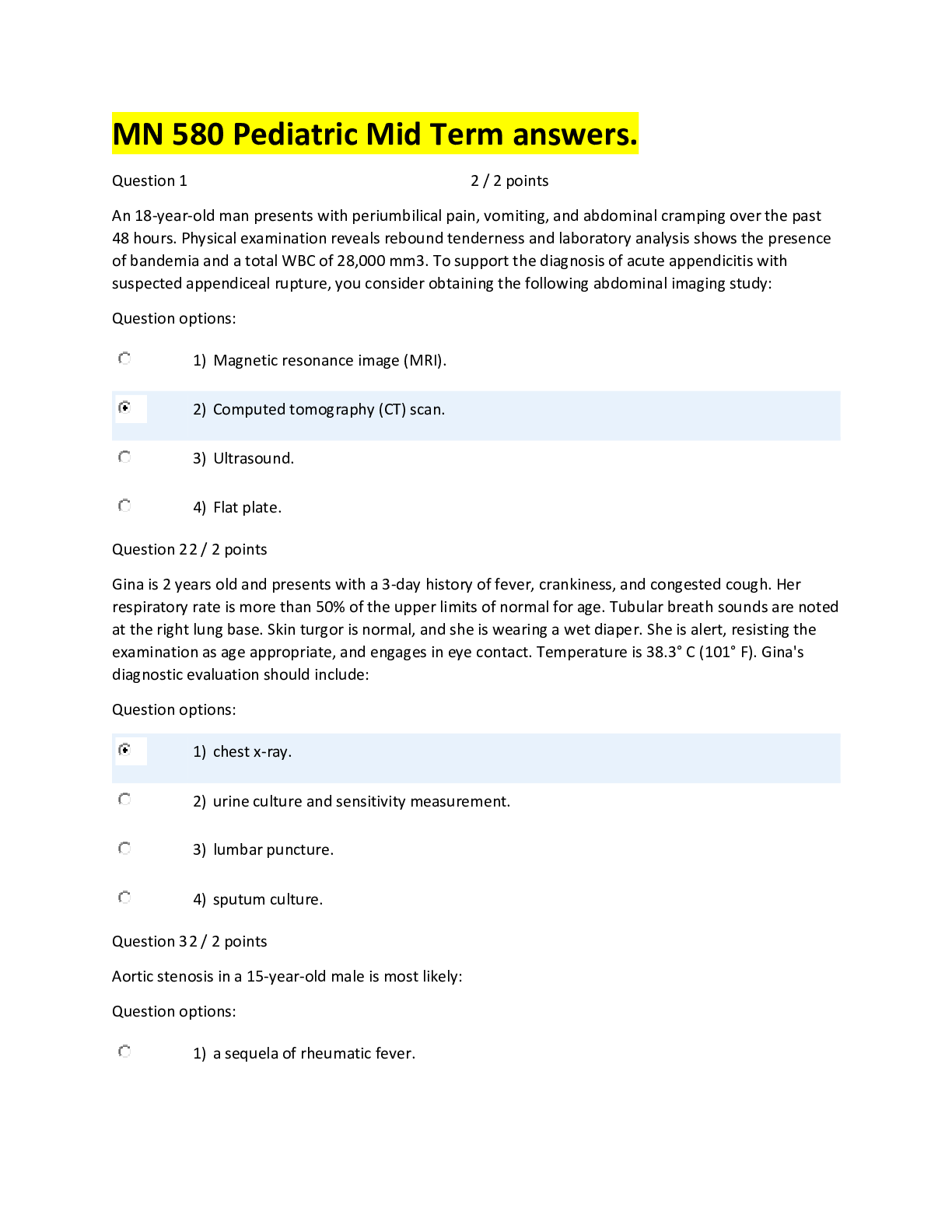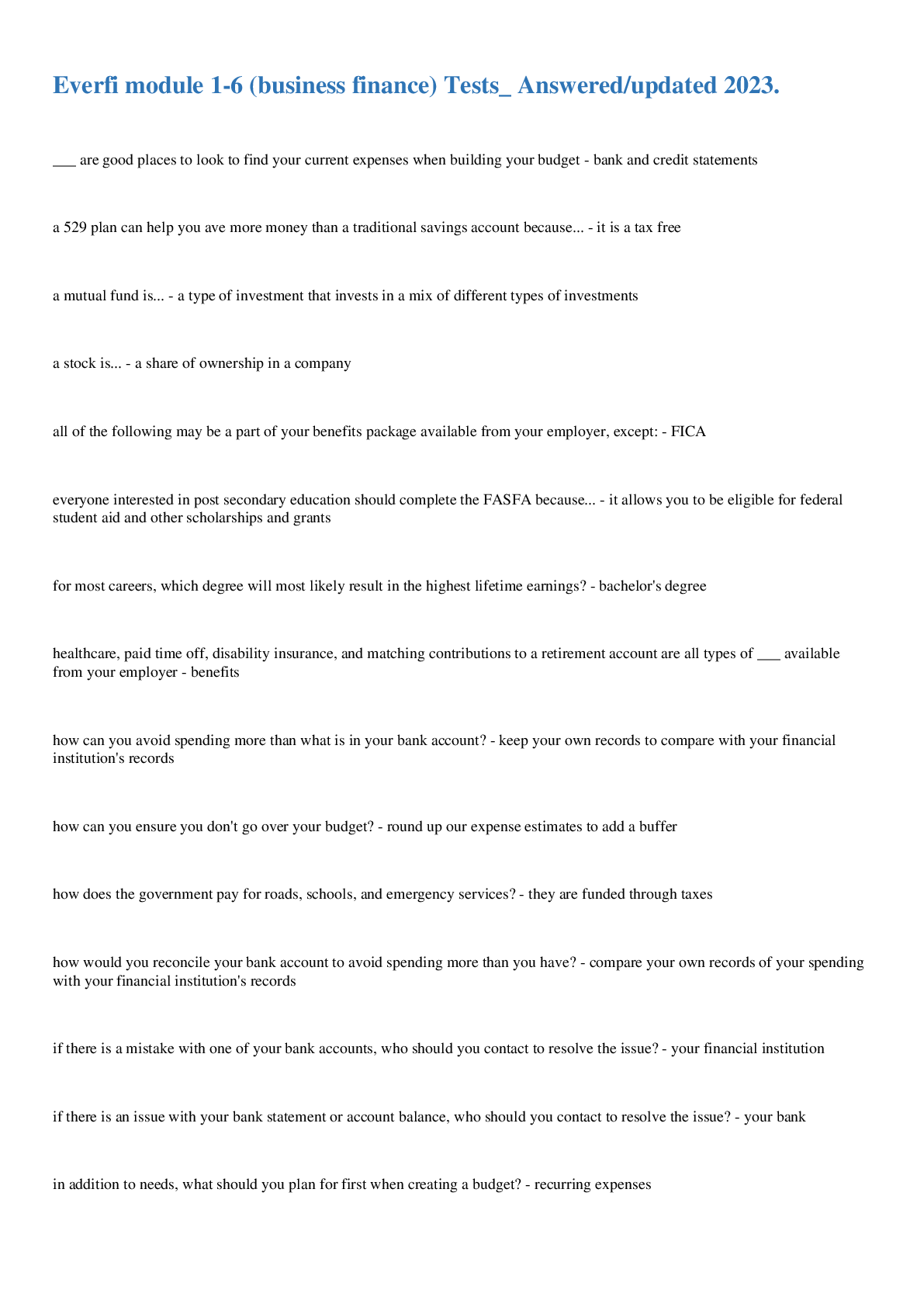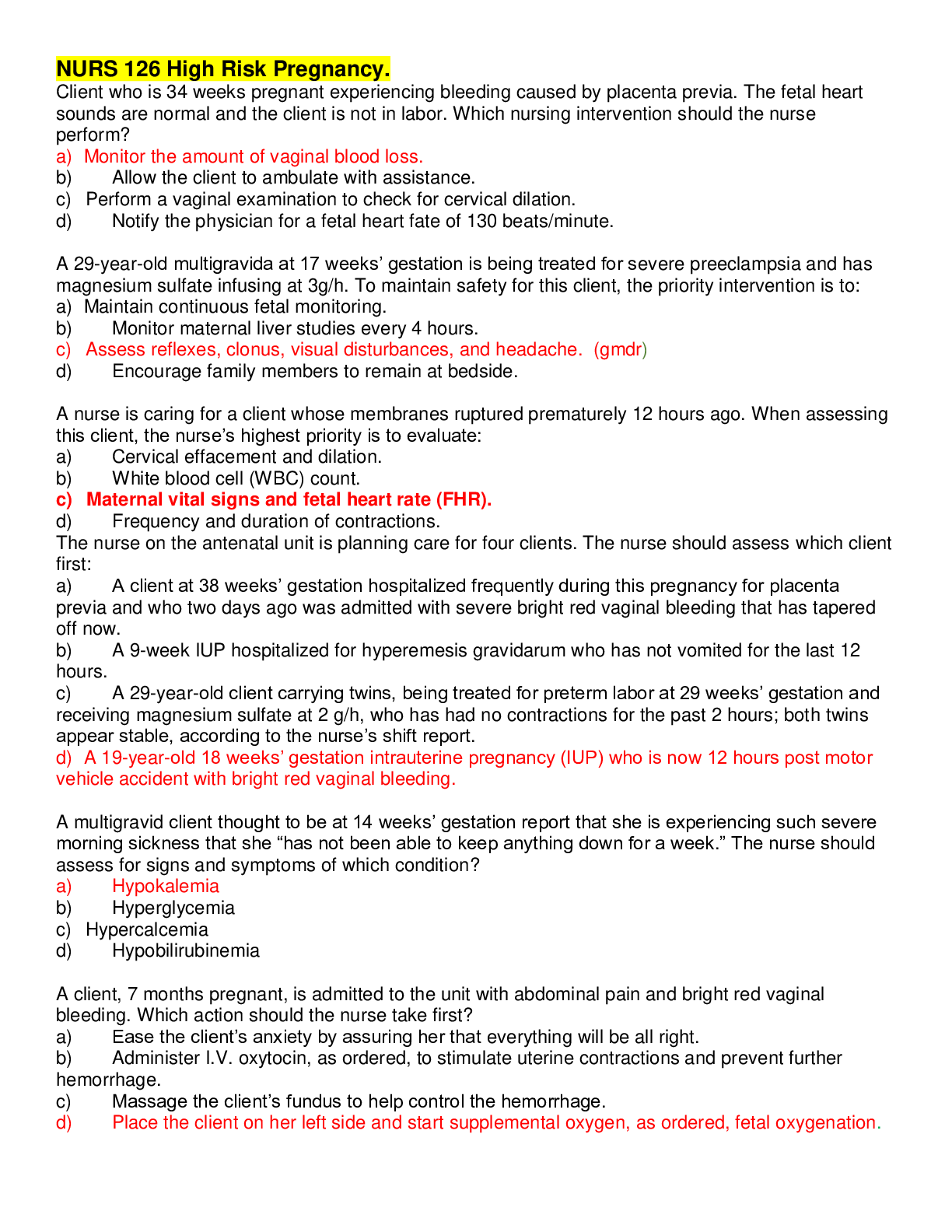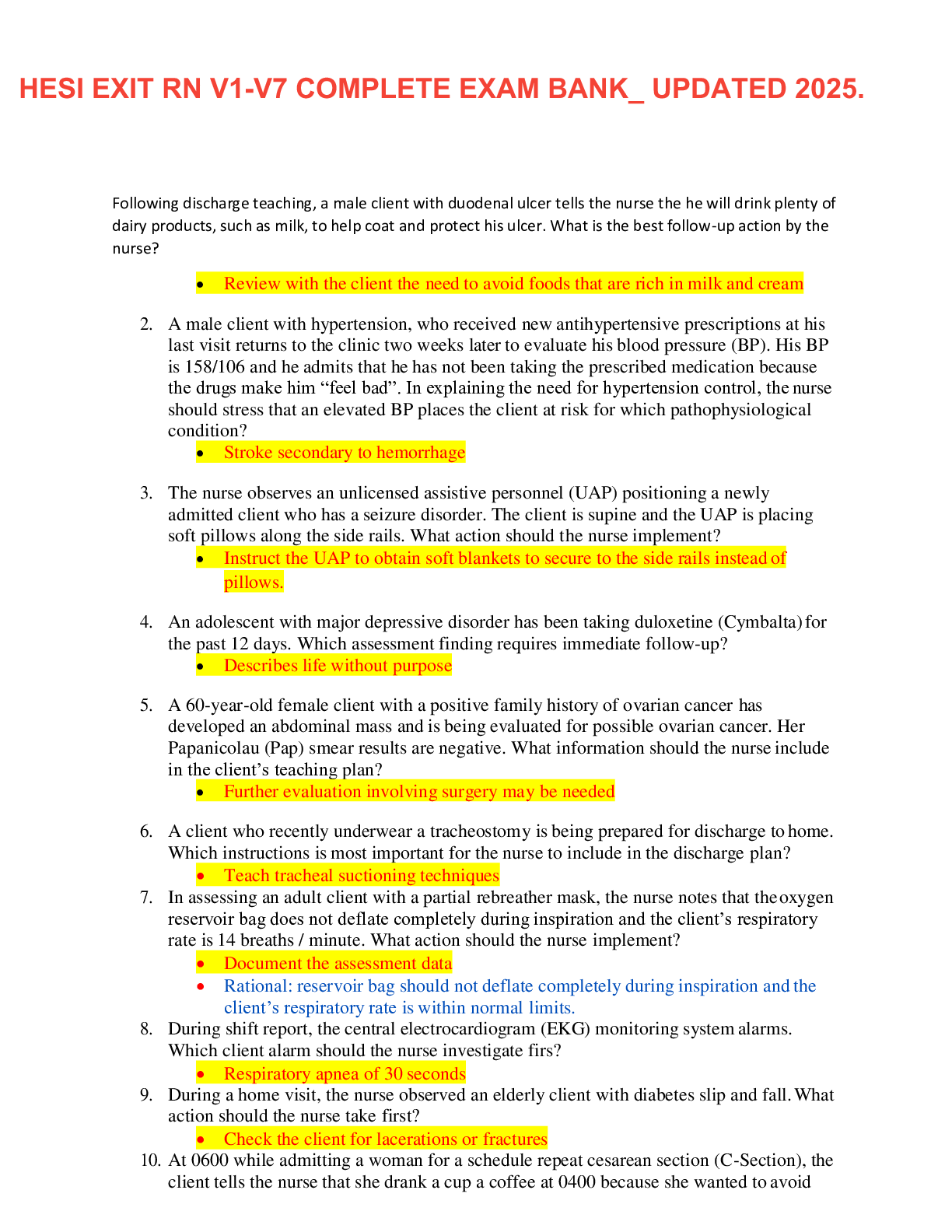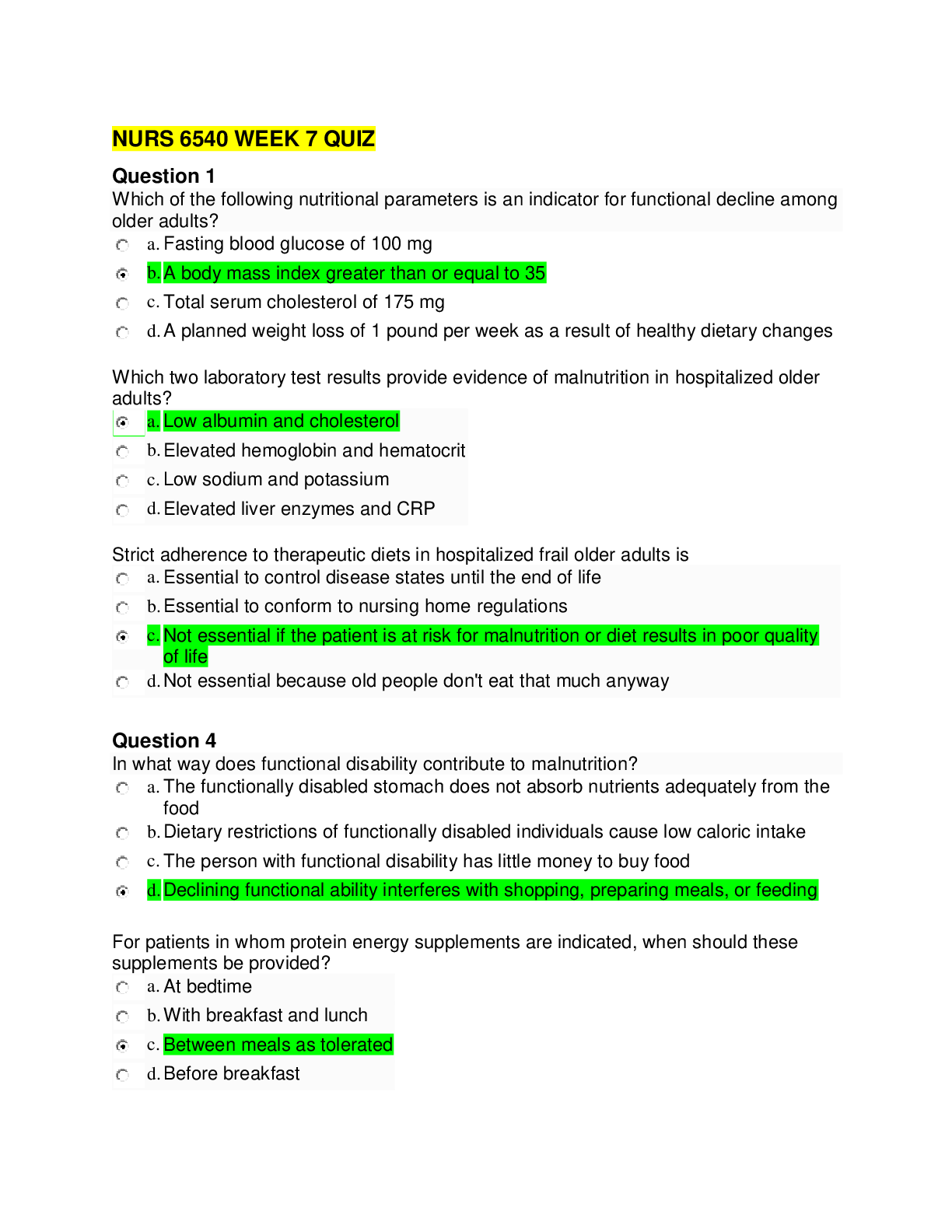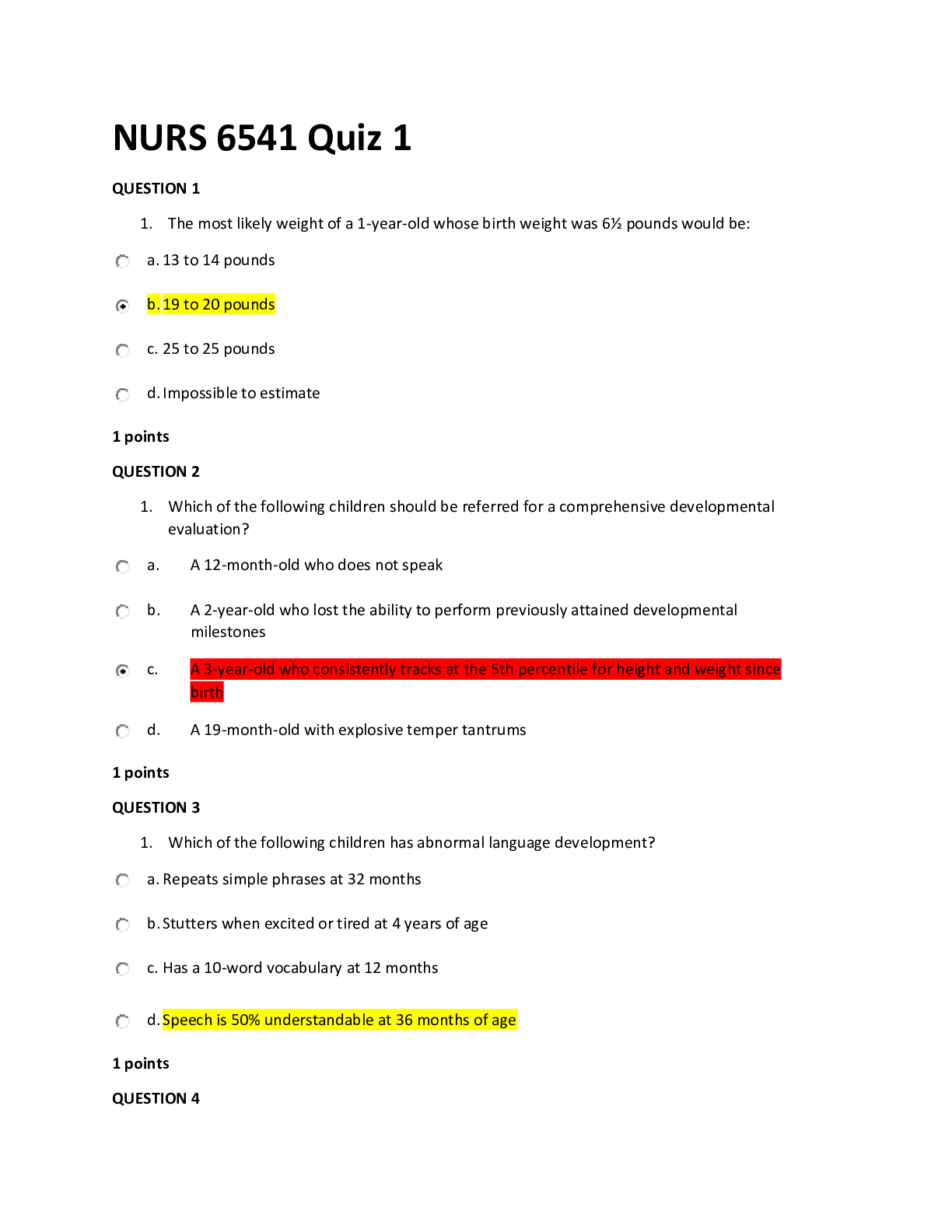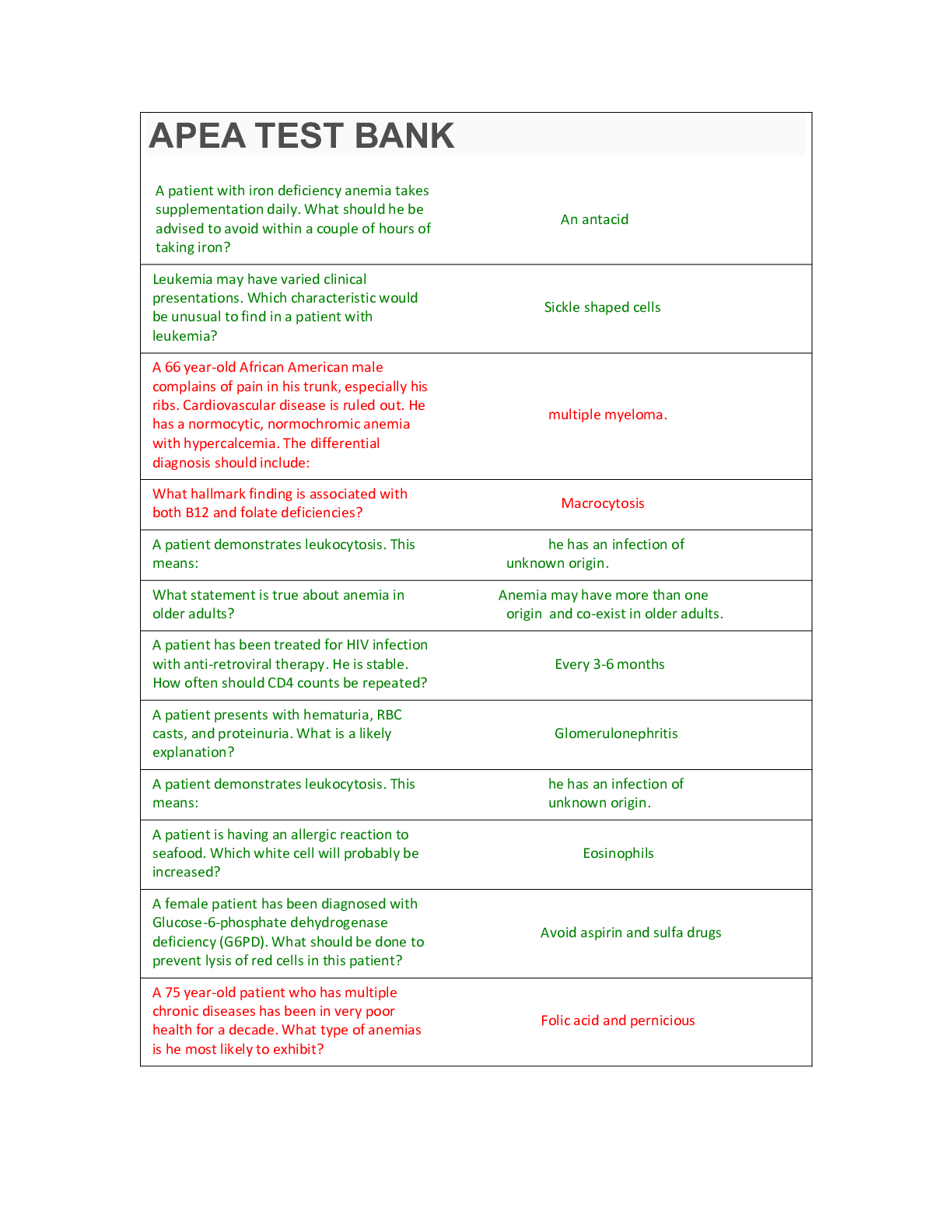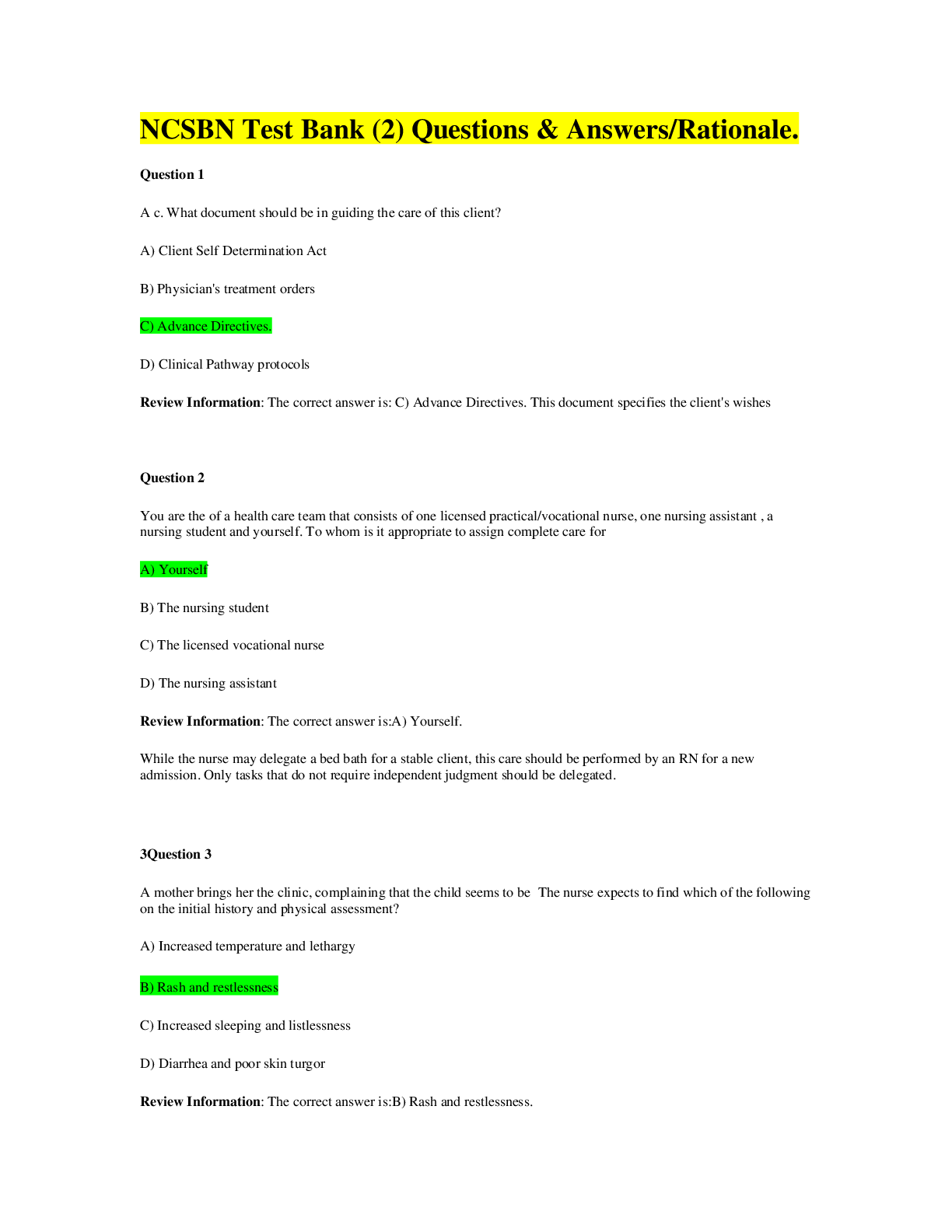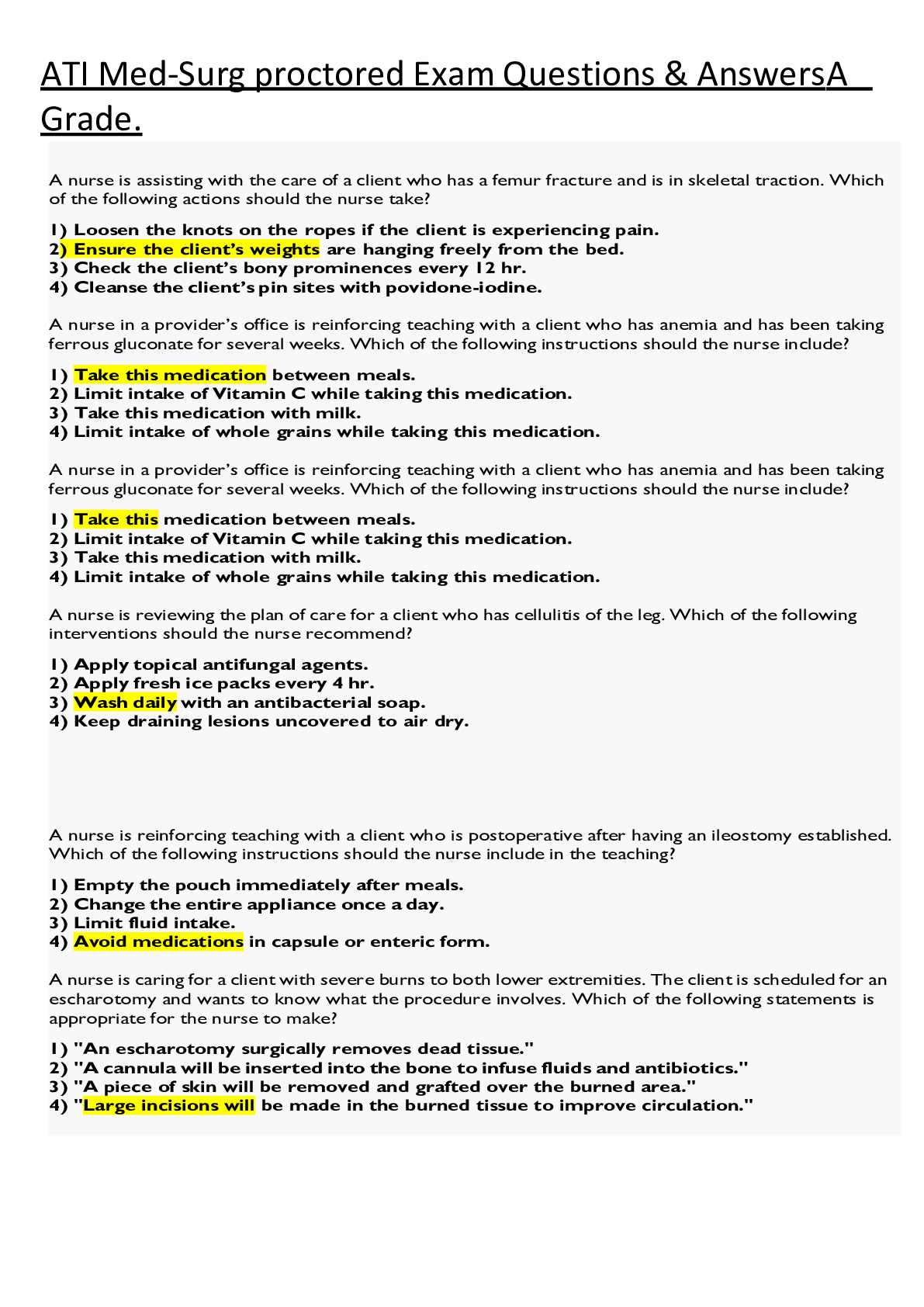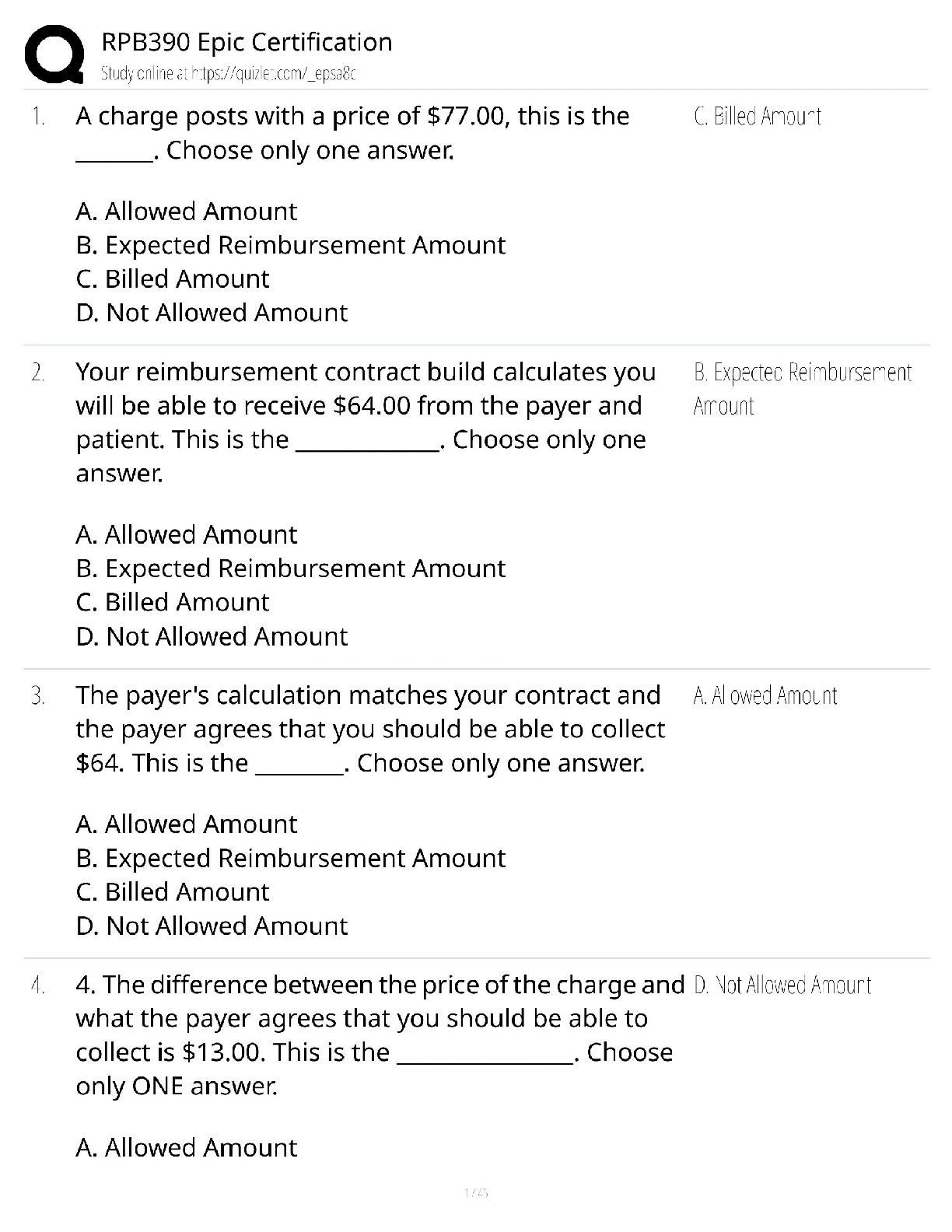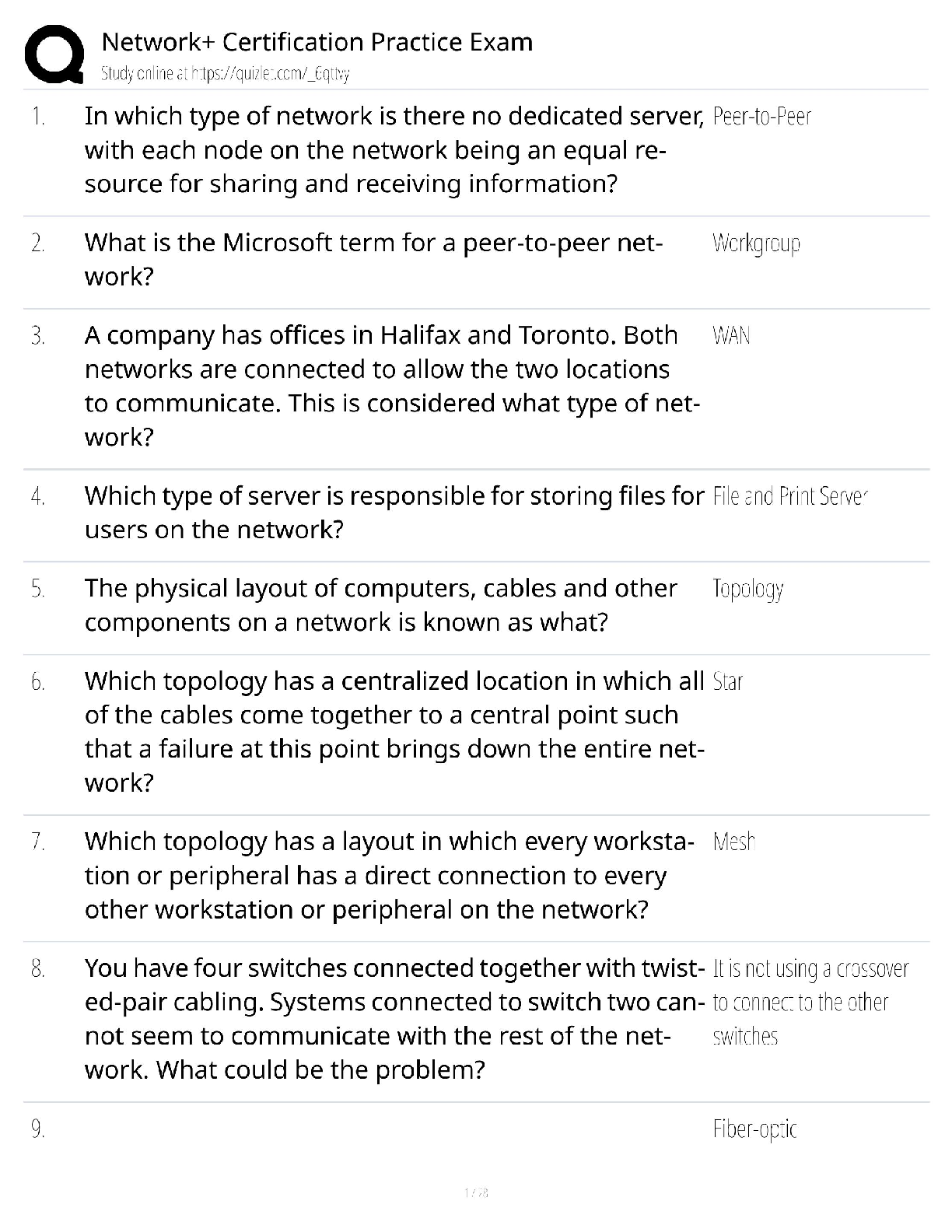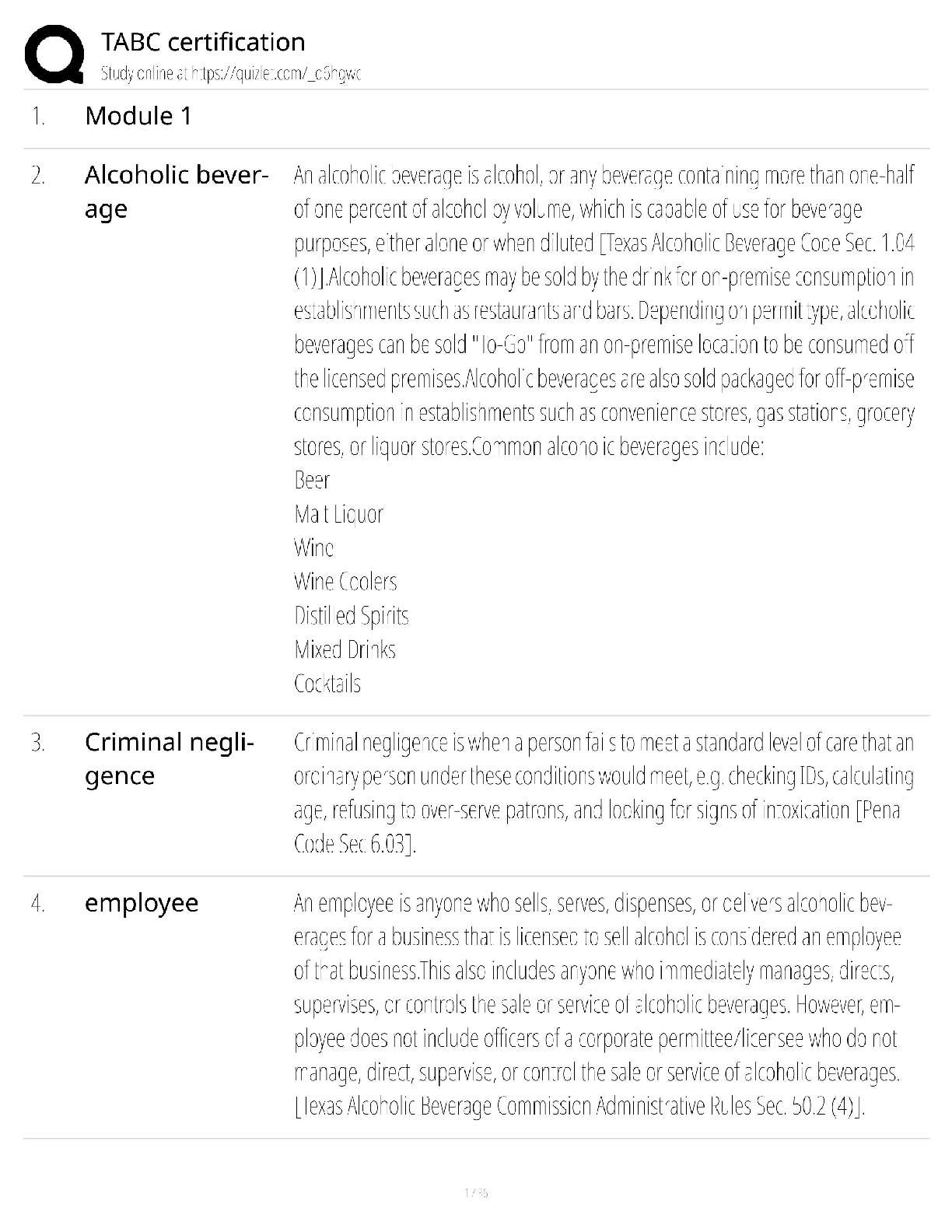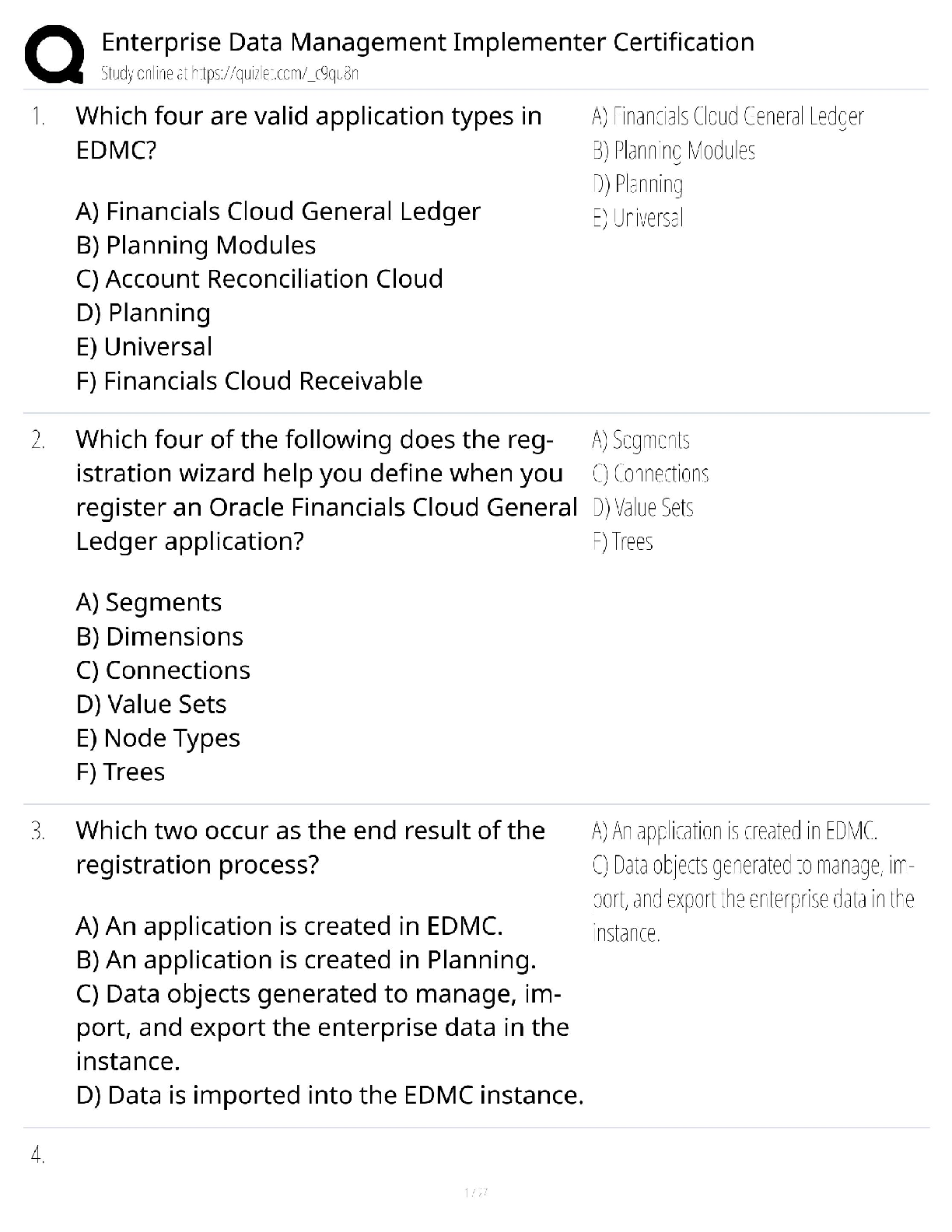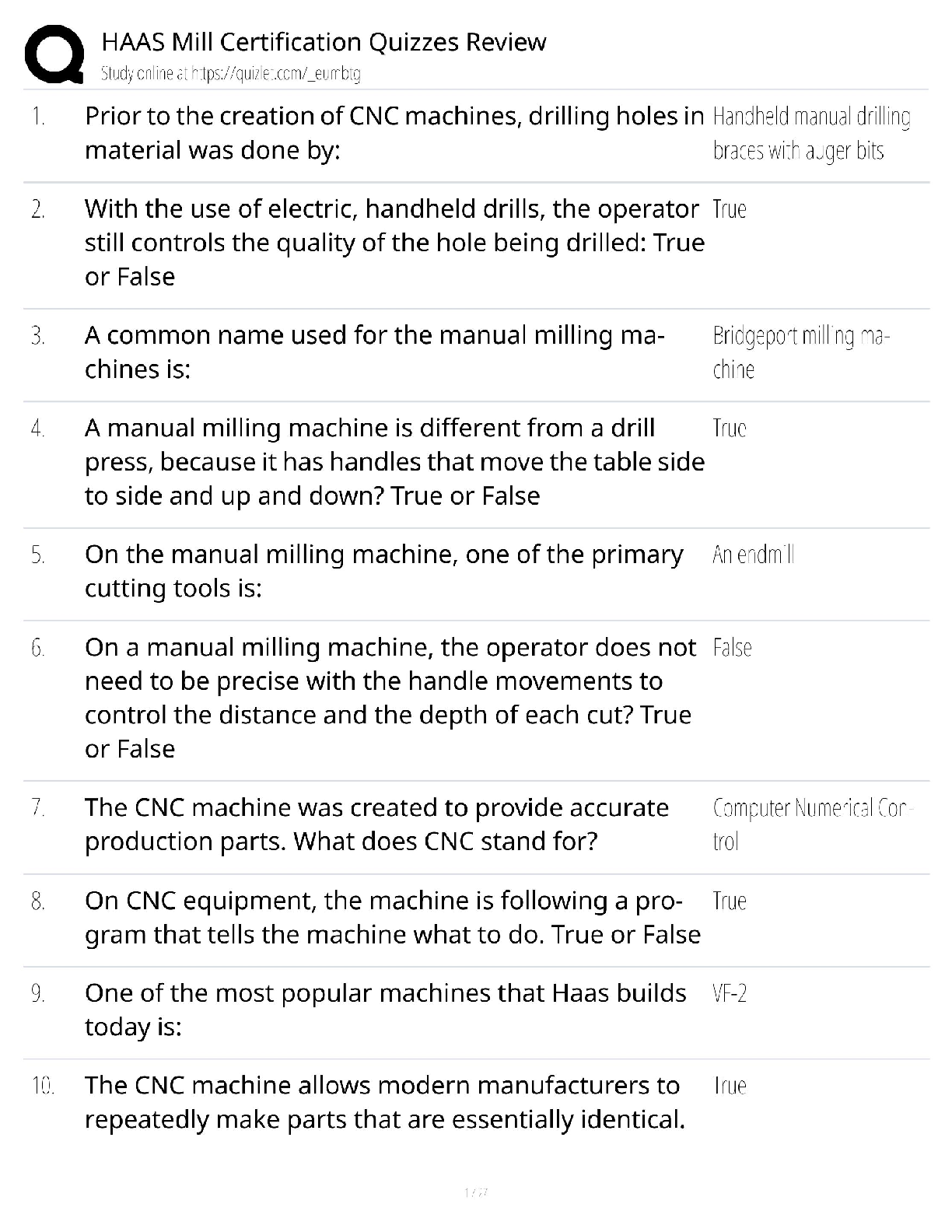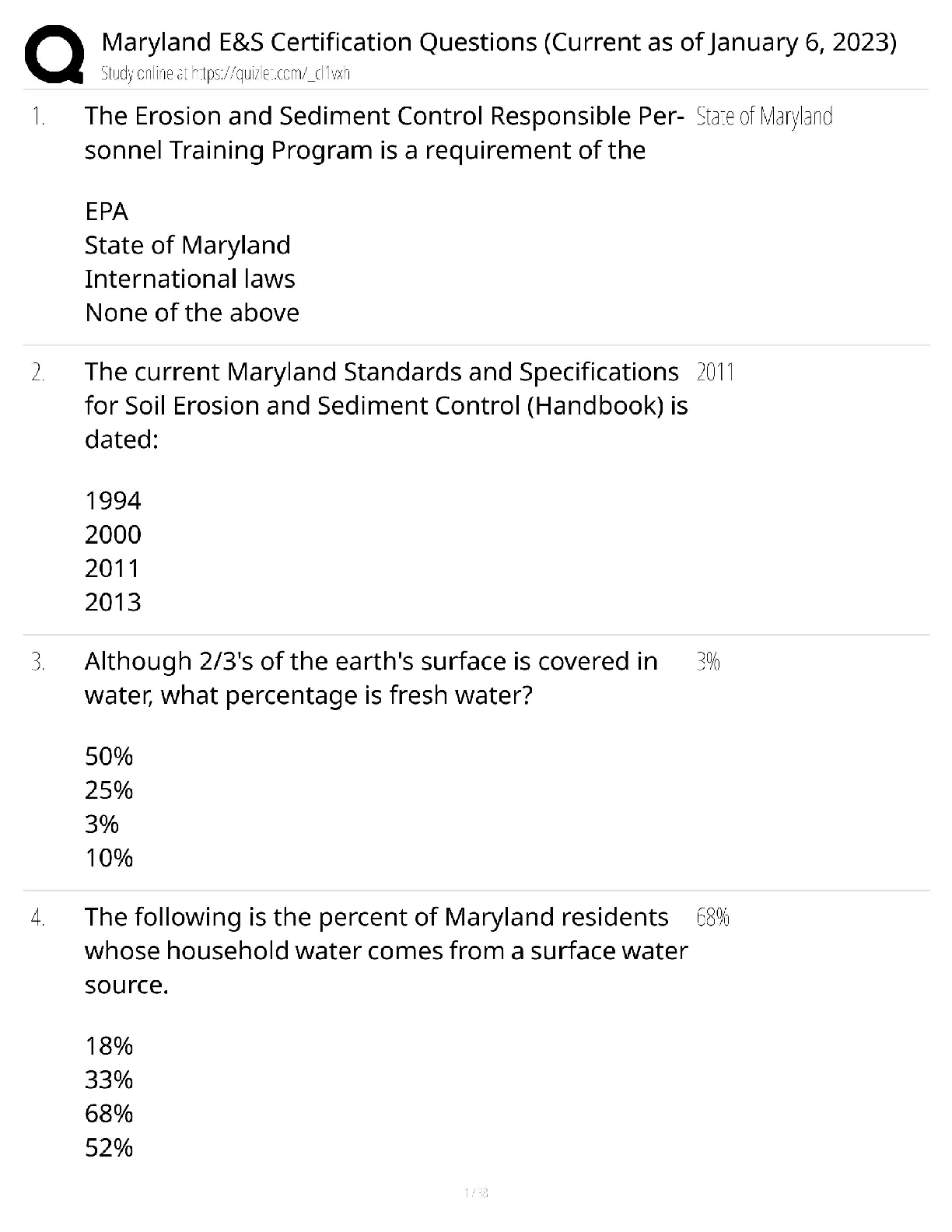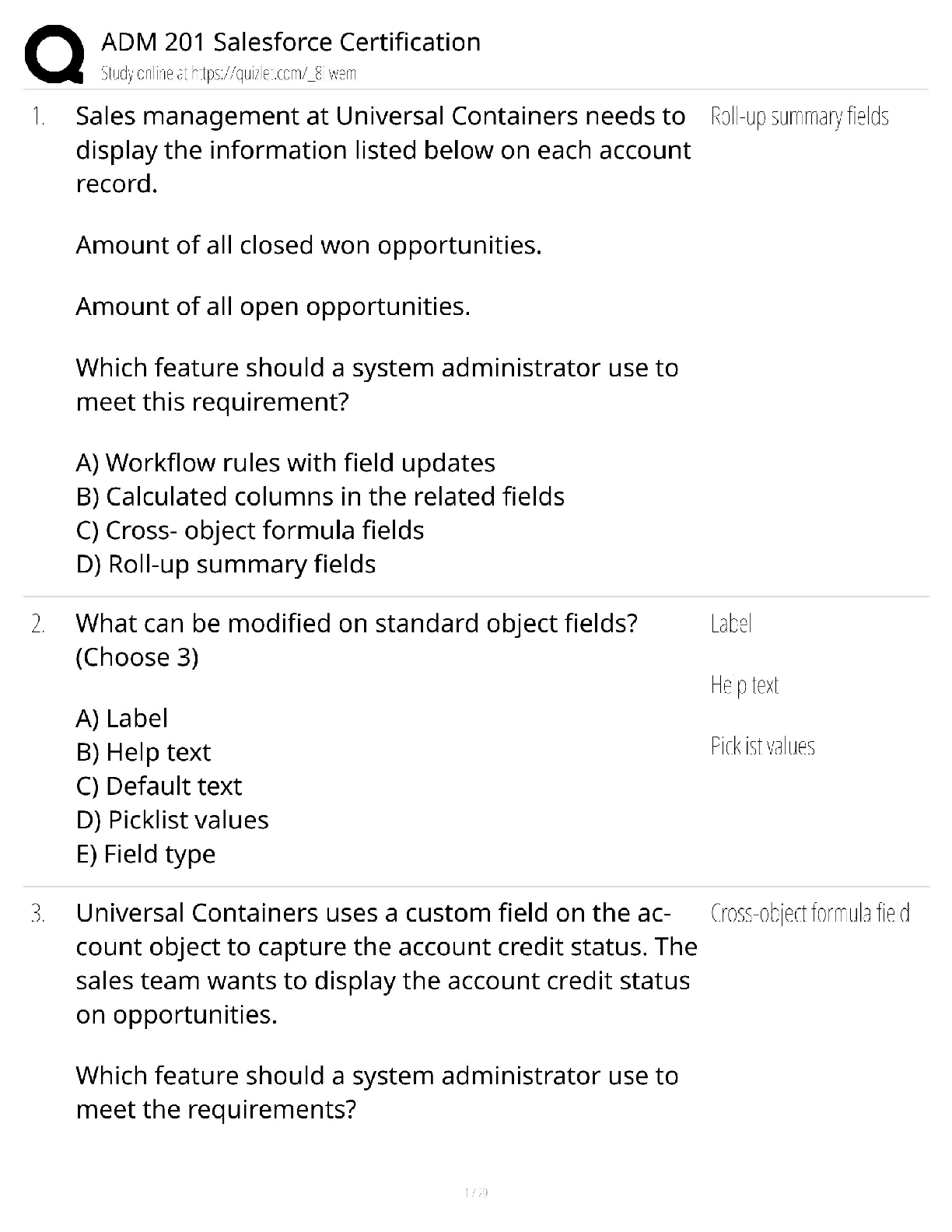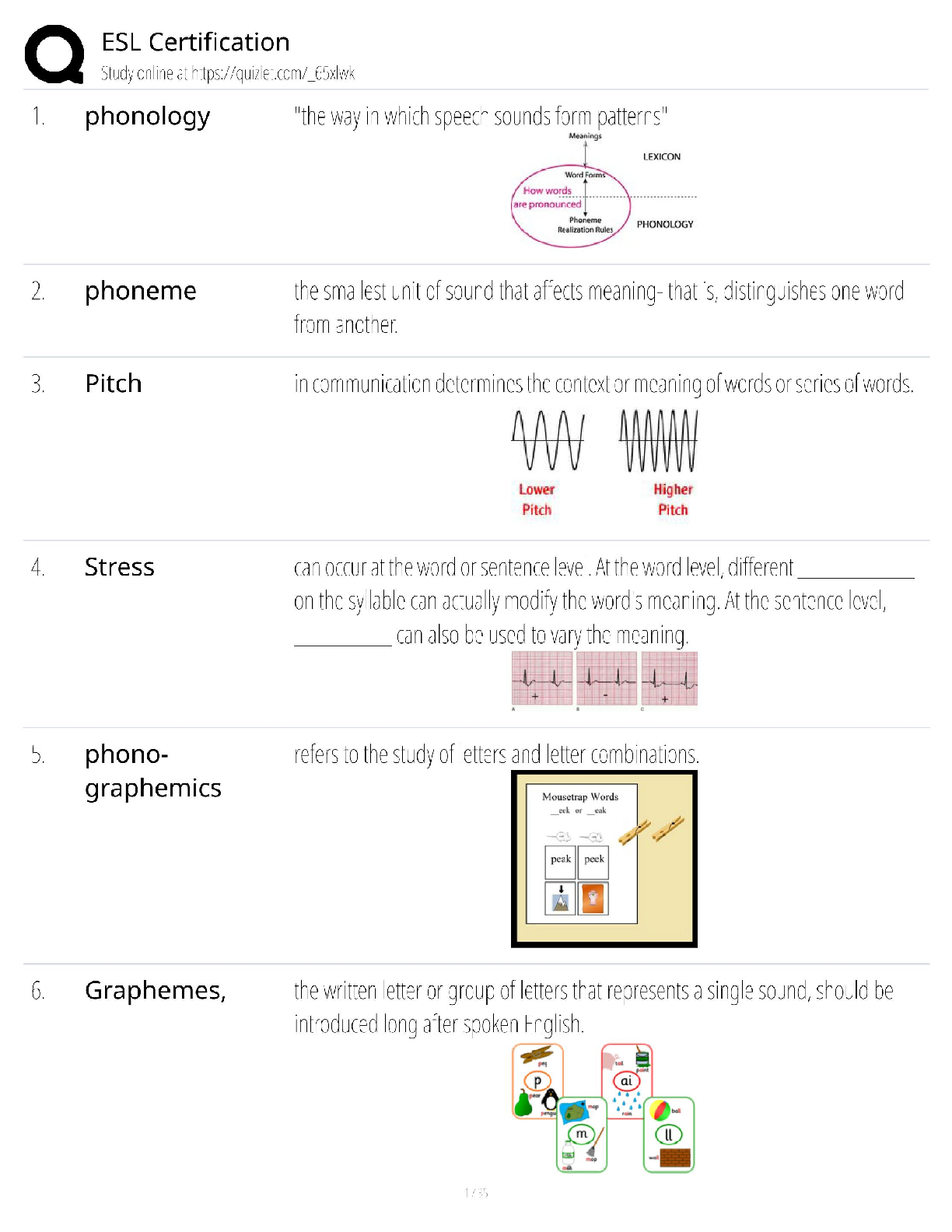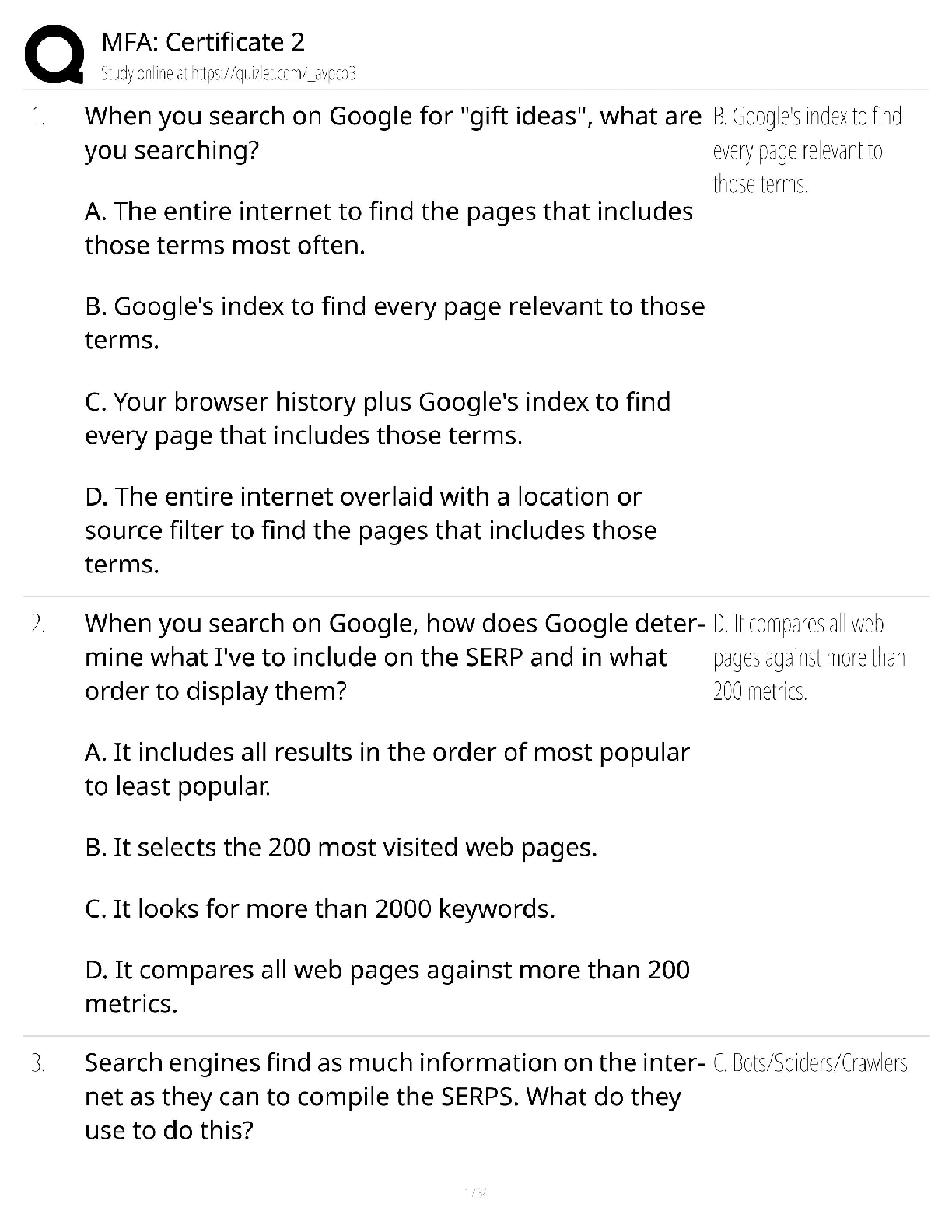Biology > QUESTIONS & ANSWERS > BIOS 390 – Molecular Biology Week 2 Quiz Study Guide; complete different quiz sets (latest) A+ wor (All)
BIOS 390 – Molecular Biology Week 2 Quiz Study Guide; complete different quiz sets (latest) A+ work.
Document Content and Description Below
BIOS 390 Week 2 Quiz Study Guide Question Set 1 1. (TCO 3) DNA replication is said to be semiconservative because 2. (TCO 3) DNA synthesis occurs in 3. (TCO 3) Which of the following statements is ... correct? Question Set 2 1. (TCO 3) During DNA replication, DNA ligase is most active on the lagging strand. 2. This is because 3. (TCO 3) Phosphodiester bonds are formed between adjacent Okazaki fragments by 4. (TCO 3) Which of the following activities are unique for DNA polymerase I? Question Set 3 1. (TCO 3) Once bound to an origin of replication, the origin replication complex (ORC) recruits 2. (TCO 3) Positive supercoils ahead of the replication fork are resolved by Question Set 4 1. (TCO 3) Replication licensing ensures that 2. (TCO 3) Pre-replication complex assembly 3. (TCO 3) Find the incorrect statement. (Describe the replication processes.) Question Set 5 1. (TCO 3) Nucleotide selectivity and proofreading by DNA polymerase depends on 2. (TCO 3) Chromatin assembly factor 1 (CAF-1) is thought to aid replication by 3. (TCO 3) Telomerase is a ribonucleoprotein complex. The RNA component of the complex Question Set 6 1. (TCO 4) A nonsense mutation is one in which 2. (TCO 4) A silent mutation is one in which 3. (TCO 4) A missense mutation is one in which Question Set 7 1. (TCO 4) Which statement is not true about the deamination of cytosine? (Describe the deamination of cytosine.) 2. (TCO 4) The most frequent ultraviolet (UV) light-induced lesions of DNA are Question Set 8 1. (TCO 4) In human cells, pyrimidine dimers can be repaired by 2. (TCO 4) In humans DNA, replication errors are repaired by 3. (TCO 4) In humans, double strand DNA damage is repaired by Top of Form Question Set 9 1. (TCO 4) Translesion synthesis is mediated by 2. (TCO 4) In the mismatch repair pathway, DNA damage is recognized by 3. (TCO 4) Base excision repair is initiated by Question Set 10 1. (TCO 3) Outline the steps of nuclear chromosome replication in eukaryotes, starting from origin firing and ending with telomere replication. 2. (TCO 3) Define the term “replication licensing” and its importance in DNA replication. Explain how this is achieved in a cell. 3. (TCO 3) Describe the “end replication problem.” Discuss the role of telomeres as a solution to the end replication problem and also in aging of a cell. Question Set 11 1. (TCO 3) Why do humans need telomeres and bacteria don’t? 2. (TCO 3) Describe an example of “polymerase switching.” 3. (TCO 3) Why are RNA primers required during DNA replication? Question Set 12 1. (TCO 3) Compare and contrast the three major classes of DNA damage. 2. (TCO 3) Describe the process of translesion synthesis and explain why it is not truly a repair system. 3. (TCO 3) What two enzymes catalyze direct reversal of DNA damage? Briefly explain the mechanisms they use. Are both repair pathways present in human cells? Question Set 13 1. (TCO 4) Give example of a single base change and suggest how that change, if not repaired, will be detrimental to the host. 2. (TCO 4) Of the three classes of DNA damage, which is the most detrimental, and why? 3. (TCO 4) How can a point mutation have a range of effects—from … undetected to very fatal [Show More]
Last updated: 3 years ago
Preview 1 out of 8 pages
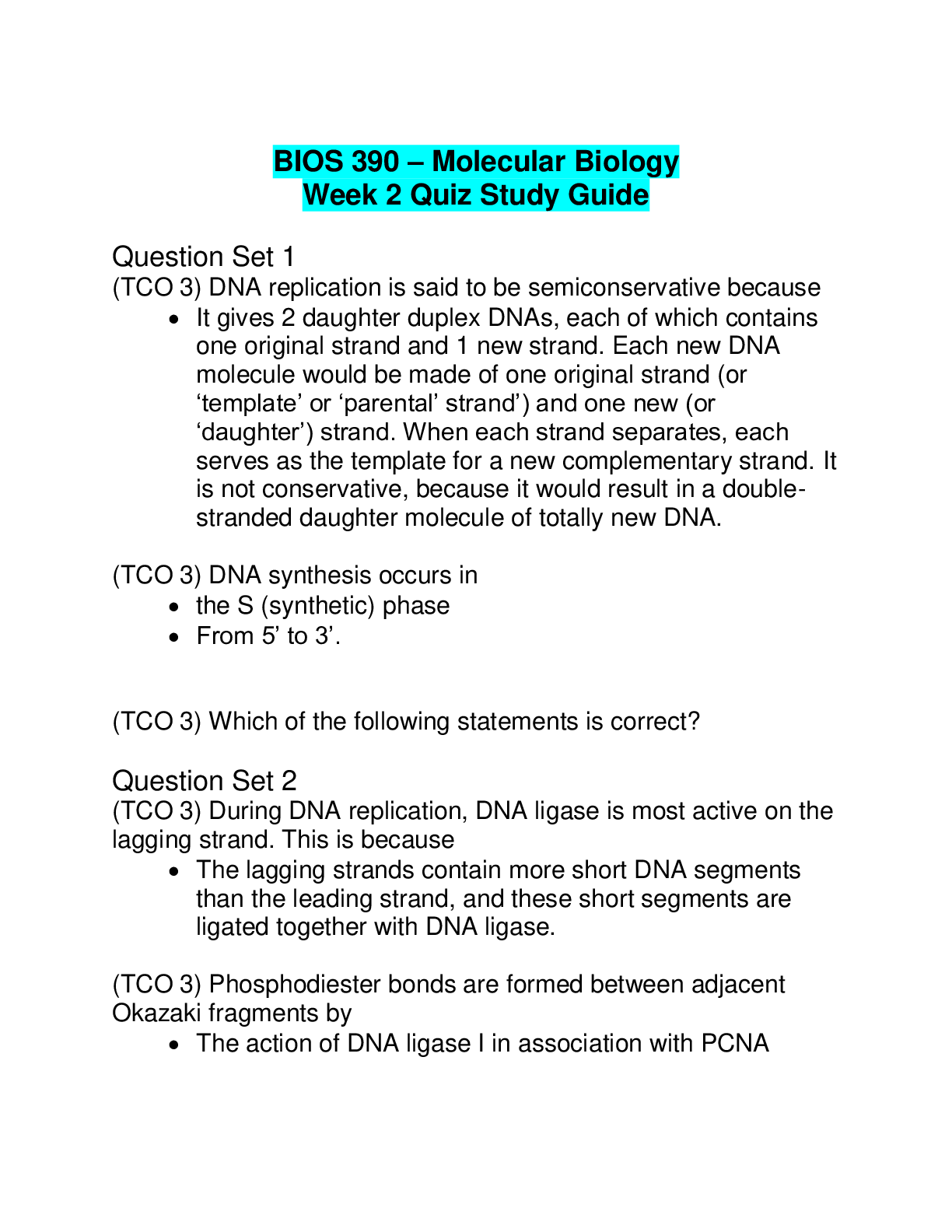
Buy this document to get the full access instantly
Instant Download Access after purchase
Buy NowInstant download
We Accept:

Reviews( 0 )
$16.00
Can't find what you want? Try our AI powered Search
Document information
Connected school, study & course
About the document
Uploaded On
Feb 26, 2020
Number of pages
8
Written in
All
Additional information
This document has been written for:
Uploaded
Feb 26, 2020
Downloads
0
Views
199

